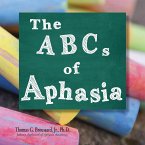In questions of psychiatric ethics, simple "yes" or "no" answers are rare, yet questions arise frequently in the clinical setting. "Should I accept a patient's invitation to a party?" "Is it OK to tell a patient that I, too, have had a depression?" "Can I release sensitive information about my patient without the patient's consent?" "Can I give a psychiatric opinion about someone I've never examined?" A shortage of ethics instruction from medical school through residency has left many psychiatrists facing increasingly complex ethical issues without a clear guide to decision making and conduct...until now. Informed by some of the formal proceedings of the APA Ethics Committee, Ethics Primer of the American Psychiatric Association presents today's ethical dilemmas regarding boundary violations; children, adolescents, and families; geriatric populations; involuntary hospitalization; managed care; confidentiality; gifts; duty to report colleagues who engage in fraud or deception; emergency care; forensic psychiatry; and consultations and second opinions--brought to life by the clinical vignettes based on actual cases seen by this primer's distinguished contributors. Including an appendix with selected material from The Principles of Medical Ethics With Annotations Especially Applicable to Psychiatry, this clinical guide and reference is sure to stimulate the discussion so integral to maintaining the dynamic tradition of ethics. As such, it is essential reading for every psychiatrist--whether in training or in established clinical practice--who aspires to a richer appreciation for the wisdom and subtleties of the guidelines and principles of medical ethics.
Hinweis: Dieser Artikel kann nur an eine deutsche Lieferadresse ausgeliefert werden.
Hinweis: Dieser Artikel kann nur an eine deutsche Lieferadresse ausgeliefert werden.








